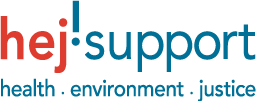
NGO submission to UNEA5 presidency
BlogThe Norwegian presidency of UNEA5 asked stakeholders to provide input to specified questions on the ministerial declaration of UNEA5.
HEJSupport, together with the Swedish Society for Nature Conservation (SSNC), European Environmental Bureau (EEB), Pesticide Action Network (PAN International), groundWork – Friends of the Earth South Africa, TOXISPHERA ENVIRONMENTAL HEALTH ASSOCIATION. submitted joint suggestions to highlight the key topics on chemicals and waste.
The declaration should contain a request to the member states to ensure the sound management of chemicals and waste as an essential cross-cutting issue for the achievement of sustainable development as recommended by the overall orientation and guidance document and actively participate in the development of the Strategic Approach and the sound management of chemicals and waste beyond 2020.
UNEA should ensure that the issues of concern recognised by the governments under SAICM and its successor, as well as partnerships under UNEP are moved to the level with increased obligations to stakeholders if their implementation has not progressed as expected. More information about how this can be achieved within SAICM can be found here: http://www.saicm.org/Portals/12/documents/meetings/IP4/stakeholders/IoC_2020_ New_Mechanism_of_Action.pdf
A key strategy addressed by the ministerial declaration should be a safe circular economy that protects human health and the environment. The systematic identification and elimination of hazardous chemicals at source from the material flows, transparency on the identity and presence of hazardous chemicals in materials and constituent components of products, sharing of this information in the supply chains, and systematic substitution work should be the core principles of the safe circular economy achieved by all member states. Materials contaminated by legacy chemicals regulated by the Stockholm Convention should not be allowed to be recycled. The same standards for chemical contents must apply to recycled as for virgin materials. Otherwise, public trust in recycled materials
will quickly be undermined.
To strengthen actions for Nature and to achieve the sustainable development goals, emphasis must be given to policies and actions prioritizing the precautionary principle, prevention and elimination of harmful chemicals at source. Prevention of harmful chemicals starts with giving priority to safe non-chemical methods and alternatives.In the food and agriculture sector, the use of and dependence on pesticides are endangering the health of millions of people and their livelihoods and contributing to resource degradation, biodiversity loss, loss of ecosystem services and environmental contamination including water, air and land. Nature based solutions for food and agriculture production must be based on agroecology and ecosystem-based approaches. A special focus is to be given to Highly Hazardous Pesticides (HHPs) which present particularly high levels of acute or chronic hazards to health or environment and cause severe or irreversible harm to health or the environment under conditions of use and which are an issue of concern under SAICM. There is already a general understanding that there is a need for a global policy mechanism to replace HHPs with agroecology. The Stockholm and Rotterdam Conventions and the voluntary International Code of Conduct have proved insufficient to prevent escalating human poisoning and environmental degradation including loss of biodiversity by pesticides. There is a need for a global treaty for the life-cycle management of pesticides including the phasing out of Highly Hazardous Pesticides and their replacement with agroecology.
The fourth message above also addresses your second question. In addition to that, we encourage the ministers to carefully analyze needs and priorities in other environmental policy processes of relevance to the implementation of the Agenda 2030, so that the declaration and the resolutions to be adopted support continued ambitious work in these policy processes in the best possible way.



